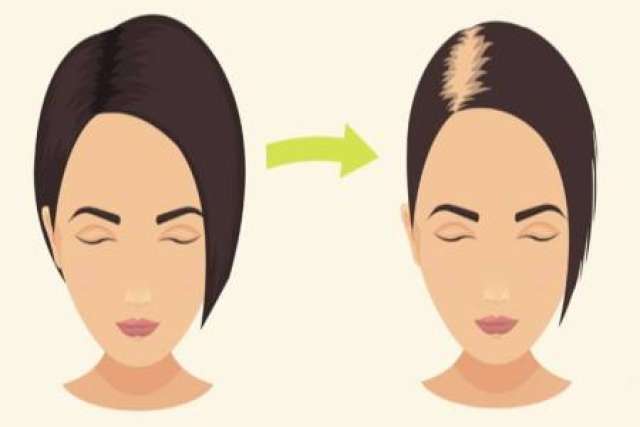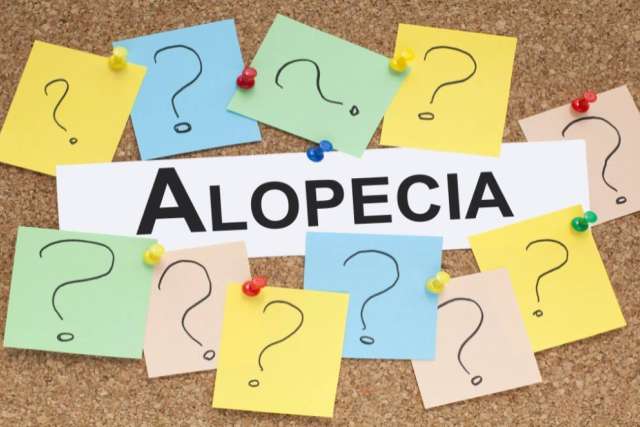Note: On June 13, the U.S. Food and Drug Administration approved the drug Olumiant to treat adults with severe alopecia areata. It is administered as an oral tablet.
Alopecia areata, an autoimmune disorder that causes hair loss, affects about 2% of the global population, including entertainer Jada Pinkett Smith.
Pinkett Smith has publicly discussed her struggles with the condition since 2018 and began shaving her head in 2021 as a way to deal with the bald patches it causes.
Comedian Chris Rock made a joke about Pinkett Smith’s hairstyle at the 2022 Academy Awards ceremony and her husband, actor Will Smith, responded by smacking Rock in the face onstage seconds later.
Alopecia areata is an unpredictable condition that can lead to patchy baldness or complete hair loss, says dermatologist Carolyn Goh, MD, founder of the UCLA Hair and Scalp Disorder Clinic. In some cases, the hair grows back. In others, it does not, says Dr. Goh, who has experienced baldness from alopecia areata for more than 30 years.
The condition has a genetic basis and can affect people of any age, though typical onset is during young adulthood.
"Alopecia areata, specifically, actually appears to be equal amongst all races, ethnicities, both genders," she says.
Alopecia is a general term for all types of hair loss, Dr. Goh says. Alopecia areata is a type of hair loss that causes bald spots or complete baldness. Alopecia totalis refers to the loss of all hair on the scalp. Alopecia universalis is when hair loss also occurs on the body.
The condition can cause profound psychological effects, Dr. Goh says.

“A large part of the psychological impact is the lack of control and unpredictability of it,” she says. “The social nature of hair is a big part of it as well, just the societal expectation for how people should look and what their hair should look like. Then it really affects people's self-esteem and sense of self.”
Dr. Goh referenced the case of a 12-year-old in Indiana with alopecia who took her own life on March 14 after being bullied at school for her appearance.
There are no treatments approved by the U.S. Food and Drug Administration for alopecia. However, a study published March 26 in the New England Journal of Medicine points to a potentially promising new medication that in a study led to greater hair growth than a placebo.
"A large part of the psychological impact is the lack of control and unpredictability of it."
DR. CAROLYN GOH, FOUNDER OF THE uCLA HAIR AND SCALP DISORDER CLINIC
Topical, injection or oral steroids are often used to treat alopecia, Dr. Goh says. There are types of hair loss other than alopecia areata, she adds, so it’s important to seek medical attention.
Dealing with the emotional and psychological effects of hair loss may be among the most difficult aspects of the condition, she says.
“If people are suffering from hair loss and having substantial anxiety or psychosocial impact, they should seek out professional help for that as well.”
Learn more about hair-loss conditions.




